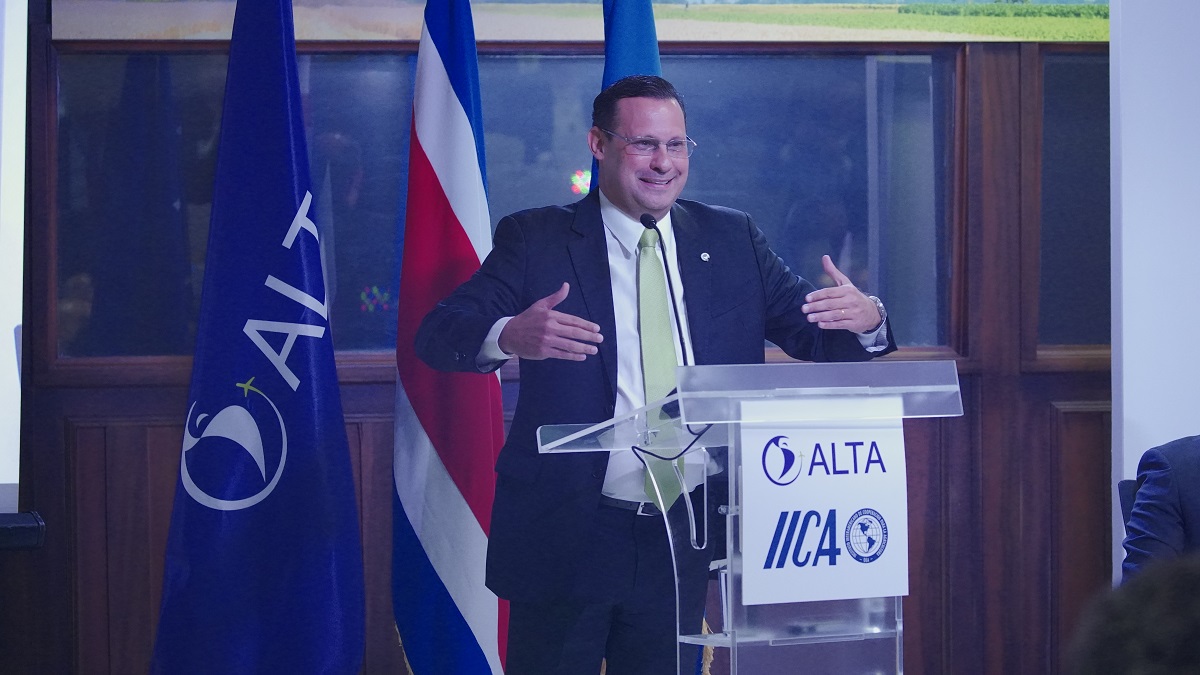This was one of the ideas expressed by the CEO of the Latin American and Caribbean Air Transport Association (ALTA), José Ricardo Botelho, at the Pan-American Liquid Biofuels Summit held at the Inter-American Institute for Cooperation on Agriculture (IICA) in Costa Rica.

San Jose, 31 March 2023 (IICA). Latin America and the Caribbean (LAC) must guarantee greater investment in research and establish public policies to fully develop its sustainable aviation fuel industry. This will enable the region to capitalize on its potential and become a global leader in the production of these clean energies, thanks to its agriculture sector’s high capacity to supply the raw materials required for this purpose.
At the Fuel and Environment Conference of the Latin American and Caribbean Air Transport Association (ALTA), held at the Inter-American Institute for Cooperation on Agriculture (IICA) as part of the Pan-American Liquid Biofuels Summit, ALTA Executive Director and CEO José Ricardo Botelho stated that the vast majority of inputs required to produce sustainable aviation fuel (biojet) are available in the countries of the hemisphere.
These raw materials include oils and fats, sugars and starches, and lignocellulosic material, for which the agriculture sector can play a leading role as a supplier.
“The role that agriculture plays in this process is extremely important”, noted Botelho. “The region possesses most of the inputs but lacks the requisite public policies. Now is the time to establish these policies in a technical manner that would allow for developing the industry and attracting the right investments”, added the ALTA executive.
The opening of the conference was attended by IICA Director General Manuel Otero, who stressed the fact that “the Institute stands ready to build bridges with the regional aviation industry and foster innovation in this area, in which agriculture of the Americas has tremendous potential”.
Along those lines, Botelho remarked that, “in order to continue advancing towards the ambitious goals set, it is crucial to coordinate efforts between the public and private sectors. Latin America and the Caribbean has the potential to lead the production of sustainable aviation fuel around the globe”.
The full interview with ALTA’s CEO is available here.
More information:
Institutional Communication Division.
comunicacion.institucional@iica.int











